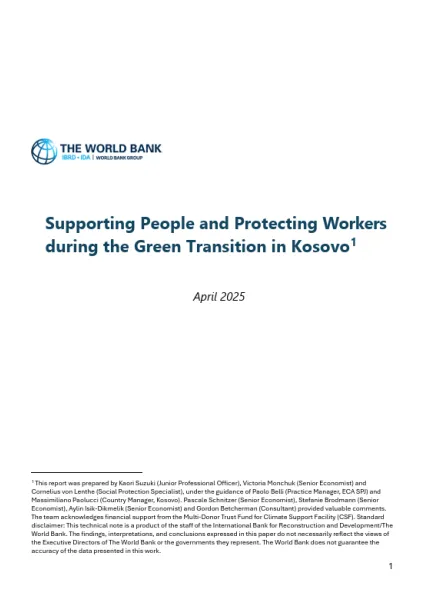
Supporting People and Protecting Workers during the Green Transition in Kosovo
Kosovo has been solidifying its efforts for the green transition, shaped by international and national commitments. The country joined global climate action efforts in 2018, setting voluntary national commitments to reduce greenhouse gas emissions and increase the share of renewable energy. As part of the Energy Community Treaty, Kosovo committed to harmonizing its climate change policies with the European Union and contributing to achieving net zero emissions by 2050. Despite steady economic growth and poverty reduction, Kosovo faces challenging labor market conditions with low levels of labor force participation and employment, low productivity, and significant unemployment. The report reviews the impact of the green transition on employment in Kosovo and the effects it will have on the workforce and the skills base required in the future. Globally, as in Kosovo, the structural change of the currently carbon-intensive economy will inevitably displace jobs in polluting sectors with high Greenhouse Gas (GHG) emissions, while creating new jobs that accompany the changing economy. The magnitude of risks that losers of the transition will face varies depending on the skills gap that workers need to overcome to move into green occupations, or at minimum, to one not at risk of displacement. Understanding the differentiated risks is crucial for the Social Protection and Labor (SPL) system to facilitate workers’ smooth transition by providing intermediation, retraining, and up/reskilling opportunities, and provide those who fall between the cracks with appropriate temporary safety net support.